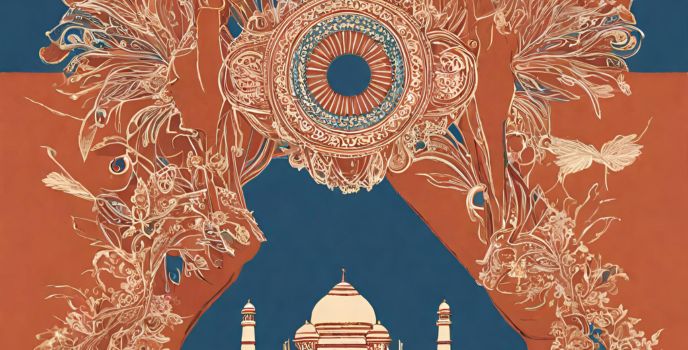The publication seeks to address the tripartite gap between efforts, projection and outcomes of India’s soft power strategy in South Asia. The chapters in the Special Issue are divided into three sections, with each section discussing a specific facet of New Delhi’s soft power diplomacy. The first section consists of chapters that focus on strengthening three fundamental instruments of India’s Soft Power. The first chapter, co-authored by Shreya Upadhyay and Vivek Mishra, discusses the merits and future of promoting democratic values in India-Maldives ties. The bilateral relationship has seen some challenges in the past few months, yet the chapter explicates how India’s democratic values remain the best metric in establishing its influence in Maldives. The second chapter by Sreeradha Datta explores the potential of development assistance in India-Bangladesh ties as a Soft Power measure in order to elevate New Delhi’s perception among the youth of Bangladesh. The next chapter by Mihir Shekhar Bhonsale examines the possibilities of India establishing institutional linkages in Nepal and Sri Lanka to promote Buddhism as a soft power measure more effectively.
The second section of the Issue details the importance and a greater need for a people-centric approach in India’s soft power strategy in South Asia. The chapter by Rahul Karan Reddy examines the Soft Power of Education in India-Nepal relations and discusses the significance of catering to the aspirations of young Nepali students for India’s continued centrality in Nepal’s development-led future. The chapter by Monish Tourangbam and Swati Sinha examine the case of Afghan diaspora in enhancing India’s soft power in light of the challenges posed by the Taliban takeover and argue that the well-being of the people of Afghanistan must remain a core objective of India’s soft power approach. Debasish Nandy’s chapter discusses the role of India’s assistance in Bhutan’s human resource development with specific emphasis on capacity building as a critical soft power instrument for India.
The third section ideates a newer course of actions for India’s soft power strategy in the coming years. Cchavi Vasisht’s chapter considers the scope of new avenues in India's soft power diplomacy in Myanmar. The paper argues that India’s cultural and trade ties foster great potential and must be leveraged to promote democracy, education and economic development through bilateral engagements. Zainab Akhter’s paper highlights the role of Multitrack Diplomacy in pursuit of fostering peace between India and Pakistan beyond the realm of the state and advocates for the importance of civil society groups. The final paper by Muhsin Purayil analyses India’s comprehensive role in leading the digital transformation in South Asia. The paper assesses the nuanced landscape of India’s digital diplomacy, mapping its engagements, challenges and the transformative role it can play in fostering its soft power. The concluding chapter by Omkar Bhole brings forth key recommendations from all chapters and ideates practical measures. The chapters in the issue serve multiple purposes including advancing the scholarly debate surrounding Soft Power, India in South Asia and the depth and bounds of its Soft Power in the region.
Access the full issue here.



Author
Omkar Bhole
Omkar Bhole is a Senior Research Associate at the Organisation for Research on China and Asia (ORCA). He has studied Chinese language up to HSK4 and completed Masters in China Studies from Somaiya University, Mumbai. He has previously worked as a Chinese language instructor in Mumbai and Pune. His research interests are India’s neighbourhood policy, China’s foreign policy in South Asia, economic transformation and current dynamics of Chinese economy and its domestic politics. He was previously associated with the Institute of Chinese Studies (ICS) and What China Reads. He has also presented papers at several conferences on China. Omkar is currently working on understanding China’s Digital Yuan initiative and its implications for the South Asian region including India. He can be reached at [email protected] and @bhole_omkar on Twitter.
Ratish Mehta
Ratish Mehta is a Research Associate at the Organisation for Research on China and Asia (ORCA). He is a postgraduate in Global Studies from Ambedkar University, Delhi and works on gauging India’s regional and global political interests. His area of focus include understanding the value of narratives, rhetoric and ideology in State and non-State interactions, deconstructing political narratives in Global Affairs as well as focusing on India’s Foreign Policy interests in the Global South and South Asia. He was previously associated with The Pranab Mukherjee Foundation and has worked on projects such as Indo-Sino Relations, History of the Constituent Assembly of India and the Evolution of Democratic Institutions in India. His forthcoming projects at ORCA include a co-edited Special Issue on India’s Soft Power Diplomacy in South Asia, Tracing India’s Path as the Voice of the Global South and Deconstructing Beijing’s ‘Global’ Narratives.